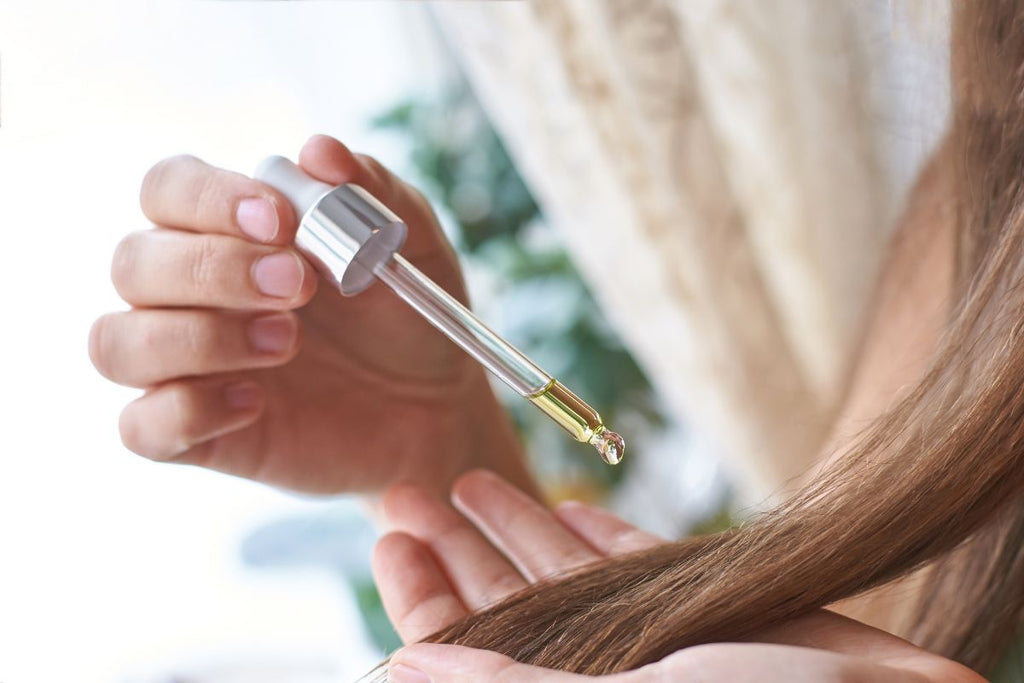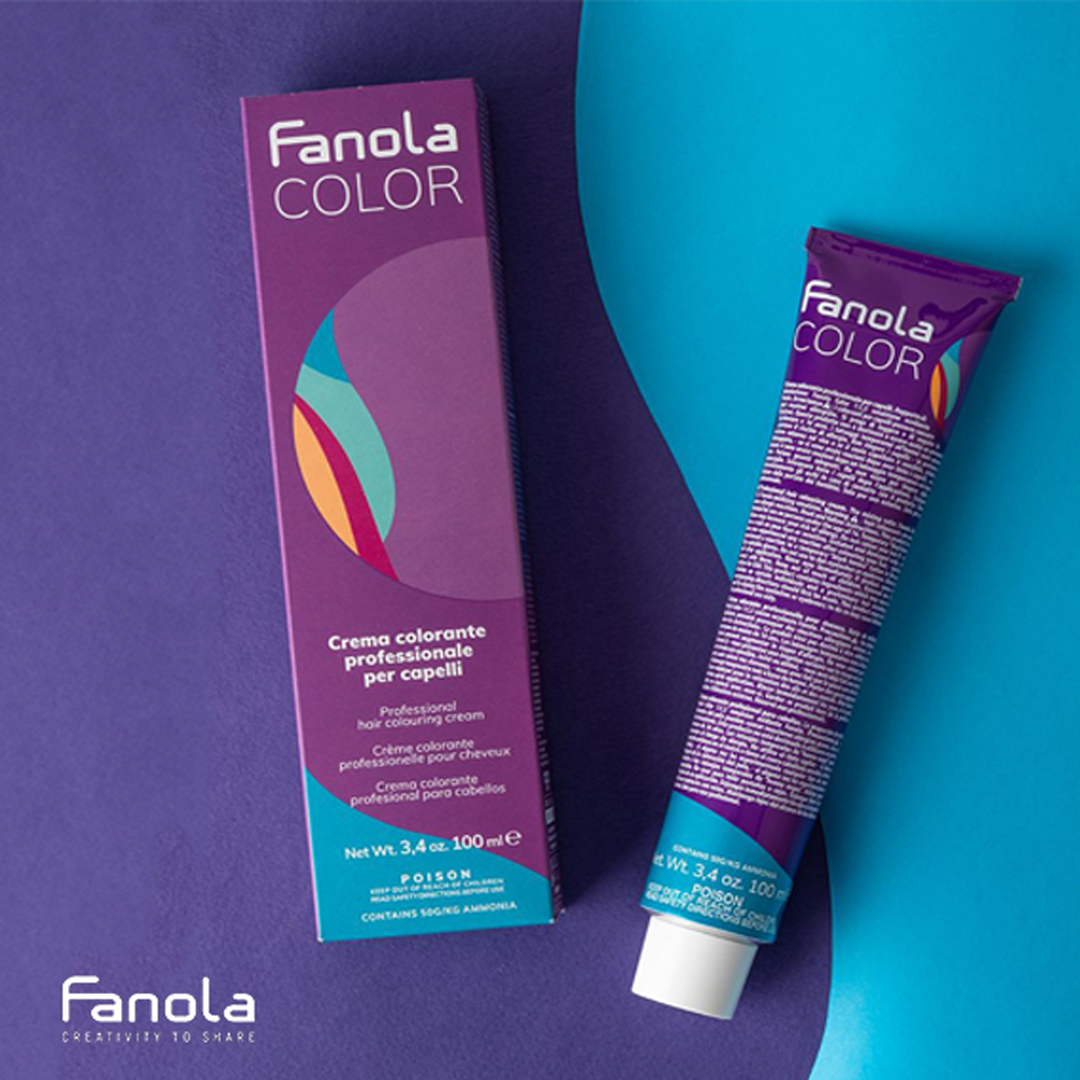Decoding Hair Care: Key Ingredients Explained

Have you ever wondered what goes into your hair products? From shampoos to conditioners, serums to styling gels, professional hair products often boast long lists of ingredients, many of which sound like they belong in a chemistry lab. However, understanding these ingredients is key to choosing the right products for your hair type and concerns.
Hair care ingredients can make all the difference in how your hair looks and feels. Whether you're dealing with dryness, frizz, thinning hair, or colour-treated locks, there's a science behind the solutions. In this guide, we'll break down the benefits of popular ingredients and explain how they work to improve the health and appearance of your hair.
Common Hair Care Ingredients: What They Do and Why They Matter

Aloe Vera is a powerhouse ingredient that strengthens and repairs hair while promoting healthy cell growth. It’s great for soothing and nourishing the scalp and contains enzymes that help cleanse your hair by breaking down excess oil without drying it out. This natural ingredient can also promote healthy hair growth.
Fragrances in hair products enhance the scent, often combining natural and synthetic compounds. However, it's essential to be aware that some people may be sensitive to specific fragrances, which can cause irritation.
Cotton Extract is a lesser-known yet effective ingredient. It strengthens hair, boosts scalp immunity, and provides moisture. Cotton extract also stimulates blood circulation in the scalp, which delivers oxygen and nutrients to hair follicles, promoting thicker, stronger hair.
Turmeric is packed with antioxidants that can help stimulate hair follicles and promote hair growth. This powerful spice can reduce dihydrotestosterone (DHT), a hormone linked to hair loss, making it beneficial for preventing thinning hair.
Hydrochloric Acid is excellent for hydrating both hair and scalp. It improves hair texture, reduces frizz, enhances shine, and makes detangling easier.
Panthenol seals the cuticle of each strand, preventing frizz, splitting, and fraying. It hydrates the scalp, protects from breakage, and improves shine while minimising scalp irritation.
Colourants are added to hair products to give your hair a specific hue, often by lightening the natural melanin in the hair so that the new colour can show through.
Water serves as the primary solvent and carrier for other ingredients in many hair products, including shampoos and conditioners.
Humectants such as Glycerin and Propylene attract and retain moisture in the hair, helping to prevent dryness and frizz. Glycerin conditions, softens and smooths the hair cuticle, while Propylene helps retain moisture, making hair easier to comb and reducing bacteria growth.
Coal Tar helps treat dandruff and other scalp conditions by slowing the growth of skin cells, shedding dead cells, and reducing redness and irritation.
Menthol promotes scalp health by treating irritation and boosting circulation, which can result in thicker and healthier-looking hair.
Salicylic Acid is a powerful exfoliant that helps treat dandruff by removing dead skin cells, reducing oil buildup, and softening the scalp.
Proteins like Keratin and Silk Amino Acids reinforce hair bonds, strengthening strands, preventing damage and helping to control frizz and split ends. These proteins also enhance hair structure and protect against environmental damage, giving hair a silky feel.
Emollients such as oils and butters (including Argan Oil, Coconut Oil, Almond Oil, and Shea Butter) create a protective barrier around the hair, reducing water loss, protecting against UV radiation, enhancing shine, improving hair elasticity and keeping hair soft and moisturised.
Sulfates like Sodium Laureth Sulfate are cleansing agents that bind with oils and water to remove dirt and grime, creating the foamy lather you associate with shampoos. These can be too strong for some hair types and lead to the scalp and hair drying out.
Parabens act as preservatives to prevent bacteria and mould growth in hair products.
Best Ingredients for Your Hair Type
Oily Hair

If you struggle with oily hair, ingredients that help control excess oil without stripping your hair completely are crucial. Aloe Vera is an excellent choice because it gently removes excess oil while keeping your scalp hydrated. Sodium Laureth Sulfate is another effective ingredient for oily hair because it binds to oils and dirt, lifting them away from the scalp and hair, and leaving your hair feeling fresh and clean.
Dry Hair
Dry hair requires intense hydration and moisture retention. Aloe Vera not only hydrates but also soothes the scalp, promoting a healthier environment for hair growth. Hydrochloric Acid improves moisture retention, reducing frizz and adding shine. Panthenol and Glycerin are both humectants that draw moisture into your hair, leaving it soft and smooth. Proteins and Silk Amino Acids help strengthen hair and repair damage, while oils like Coconut Oil and Almond Oil provide deep hydration and nourishment, helping to restore dry and damaged hair.
Curly Hair
Curly hair often needs extra moisture and strength to maintain its natural shape and avoid frizz. Panthenol and Glycerin are excellent for drawing moisture into curly hair, keeping it hydrated and defined. Keratin and Silk Amino Acids help strengthen curls, making them less prone to breakage and frizz. Oils like Argan Oil, Coconut Oil, Almond Oil, and Shea Butter provide the moisture and nourishment that curly hair craves, helping to enhance natural curls’ bounce and shine.
Colour-Treated Hair
Colour-treated hair needs special care to preserve the vibrancy of the colour while preventing damage. While Colourants are responsible for giving hair its new hue, it’s essential to avoid harsh Sulphates, which can strip the colour and leave hair looking dull. Instead, look for products with moisturising ingredients like Coconut Oil and Silk Amino Acids that help protect and maintain colour-treated hair.
Fine/Thinning Hair
Fine and thinning hair requires ingredients that can help promote hair growth and improve scalp health. Cotton Extract boosts scalp immunity and stimulates blood circulation, which can lead to stronger, thicker hair. Turmeric is another powerful ingredient that promotes hair growth by increasing blood flow to the scalp and reducing hair loss associated with hormonal changes.
Damaged/Brittle Hair
For damaged and brittle hair, it's essential to focus on repairing and strengthening the hair strands. Propylene helps retain moisture, making the hair easier to manage, while Proteins strengthen the hair, reducing breakage. Oils like Coconut Oil and Almond Oil repair and nourish the hair, restoring softness and reducing brittleness over time. Silk Amino Acids help strengthen and revitalise damaged hair while protecting against damage.
Dandruff-Prone Hair
Dandruff can be frustrating, but certain ingredients can help soothe the scalp and reduce flakes. Coal Tar and Salicylic Acid work together to treat dandruff by reducing skin cell turnover and removing dead cells. Menthol soothes and treats irritation, promoting a healthy scalp environment for hair growth.
Straight Hair
Straight hair tends to look sleek and shiny but can easily become oily or weighed down by heavy products. Coconut Oil is a great choice as it moisturises without making the hair feel greasy. Aloe Vera helps cleanse and hydrate the hair while Shea Butter protects against heat styling and environmental damage.
Thick Hair
Thick hair can benefit from ingredients that provide moisture and strength without weighing it down. Proteins help reinforce the structure of thick hair, reducing the chances of damage and frizz. Almond Oil and Argan Oil provide hydration and shine, while Coconut Oil nourishes the scalp and hair, helping to control frizz and add softness.
Expert Tips for Maximizing Your Hair Care Routine

- Know Your Hair Type: Understanding your client's hair type is the first step to choosing the right products. Look at the ingredient list and choose products designed for their specific needs.
- Layer Products Correctly: For maximum benefits, start with a shampoo that suits the hair type, followed by a conditioner or mask with nourishing ingredients. Finish with a leave-in product to lock in moisture and protect the hair throughout the day.
- Avoid Ingredient Overload: It can be tempting to try products packed with every trendy ingredient, but simplicity is key. Focus on a few powerhouse ingredients that address the specific hair concerns, rather than overwhelming the hair with too many products.
- Listen to the Hair: If the hair feels weighed down or oily after using a product, it might not be the right fit for your client. Sometimes, it's all about trial and error—don't be afraid to experiment until you find what works.
Hair care is about more than just looking good—it’s about understanding the science behind the products you use. By knowing the benefits of specific ingredients and choosing products tailored to each hair type, you can achieve healthier, more beautiful hair. Whether you're dealing with dryness, oiliness, curls, or colour-treated strands, the right ingredients can make all the difference.
Don't wait—give your client's hair the care it deserves. Visit our shop now and discover the perfect products for each hair type!




